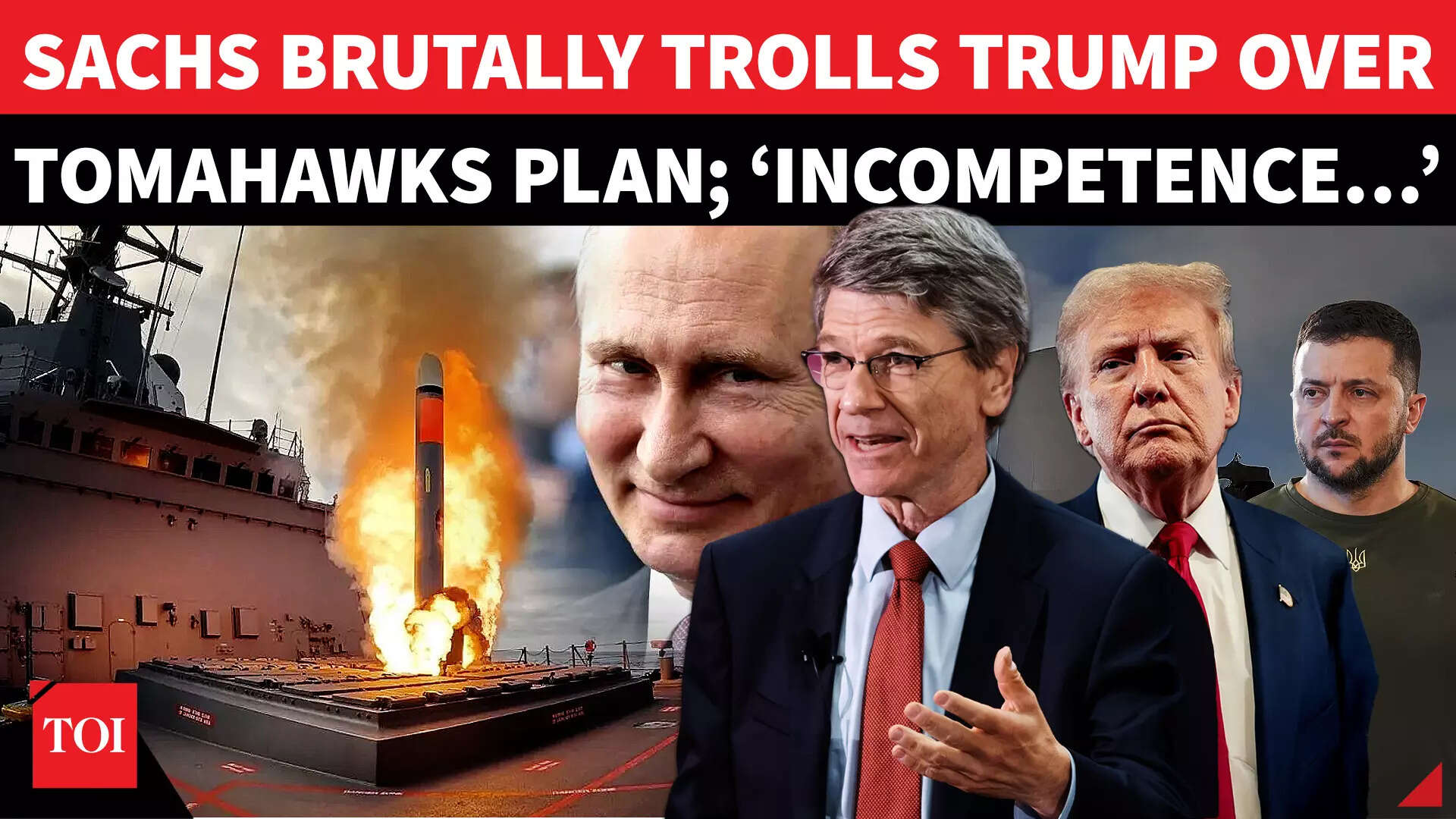Politics
U.S. Economist Critiques Trump’s Missile Proposal for Ukraine

U.S. economist Jeffrey Sachs has voiced strong criticism of the Trump administration regarding its handling of a missile proposal for Ukraine. The administration’s apparent confusion over supplying Tomahawk missiles has drawn attention, with Sachs attributing the situation to a lack of competence and the detrimental influence of large tech and military contractors. He argues that these entities benefit from a prolonged conflict, undermining efforts for a peaceful resolution.
Sachs emphasized that effectively addressing the ongoing war requires not only a clear understanding of the situation but also the political courage that appears to be lacking in both Washington and various European capitals. The discussion surrounding the provision of missiles to Kyiv has raised significant concerns, particularly following comments from U.S. Vice President J.D. Vance, who confirmed that discussions on the matter are ongoing.
Cost and Implications of Tomahawk Missiles
Each Tomahawk missile carries a hefty price tag of approximately $1.3 million. Capable of reaching targets as far as Moscow, the potential deployment of these missiles has sparked fears of escalating tensions between the United States and Russia. In response to the prospect of supplying these missiles, Russian President Vladimir Putin has issued a warning, stating that such actions would further strain already fraught U.S.-Russia relations.
The underlying issue, according to Sachs, is the lack of strategic foresight in Washington. He contends that understanding the complexities of the conflict in Ukraine is crucial for crafting effective policies that prioritize peace over military escalation. The economist’s critique comes at a time when the U.S. administration appears to be navigating a labyrinth of political and military challenges, with the stakes increasingly high.
Furthermore, Sachs’ remarks underscore a growing concern among analysts and policymakers regarding the motivations behind continued military support for Ukraine. The influence of defense contractors and technology firms, who may stand to gain from ongoing hostilities, raises questions about the true intentions behind U.S. military aid.
As discussions continue about the future of military aid to Ukraine, the implications of the Trump administration’s decisions may resonate far beyond immediate military considerations. The intersection of economics, politics, and international relations remains a critical focal point as the situation evolves.
-

 World3 months ago
World3 months agoSBI Announces QIP Floor Price at ₹811.05 Per Share
-

 Lifestyle3 months ago
Lifestyle3 months agoCept Unveils ₹3.1 Crore Urban Mobility Plan for Sustainable Growth
-

 Science2 months ago
Science2 months agoNew Blood Group Discovered in South Indian Woman at Rotary Centre
-

 Sports2 months ago
Sports2 months agoBroad Advocates for Bowling Change Ahead of Final Test Against India
-

 World3 months ago
World3 months agoTorrential Rains Cause Flash Flooding in New York and New Jersey
-

 Top Stories3 months ago
Top Stories3 months agoKonkani Cultural Organisation to Host Pearl Jubilee in Abu Dhabi
-

 Science3 months ago
Science3 months agoNothing Headphone 1 Review: A Bold Contender in Audio Design
-

 Sports2 months ago
Sports2 months agoCristian Totti Retires at 19: Pressure of Fame Takes Toll
-

 Top Stories3 months ago
Top Stories3 months agoAir India Crash Investigation Highlights Boeing Fuel Switch Concerns
-

 Business3 months ago
Business3 months agoIndian Stock Market Rebounds: Sensex and Nifty Rise After Four-Day Decline
-

 Politics3 months ago
Politics3 months agoAbandoned Doberman Finds New Home After Journey to Prague
-

 Top Stories3 months ago
Top Stories3 months agoPatna Bank Manager Abhishek Varun Found Dead in Well









